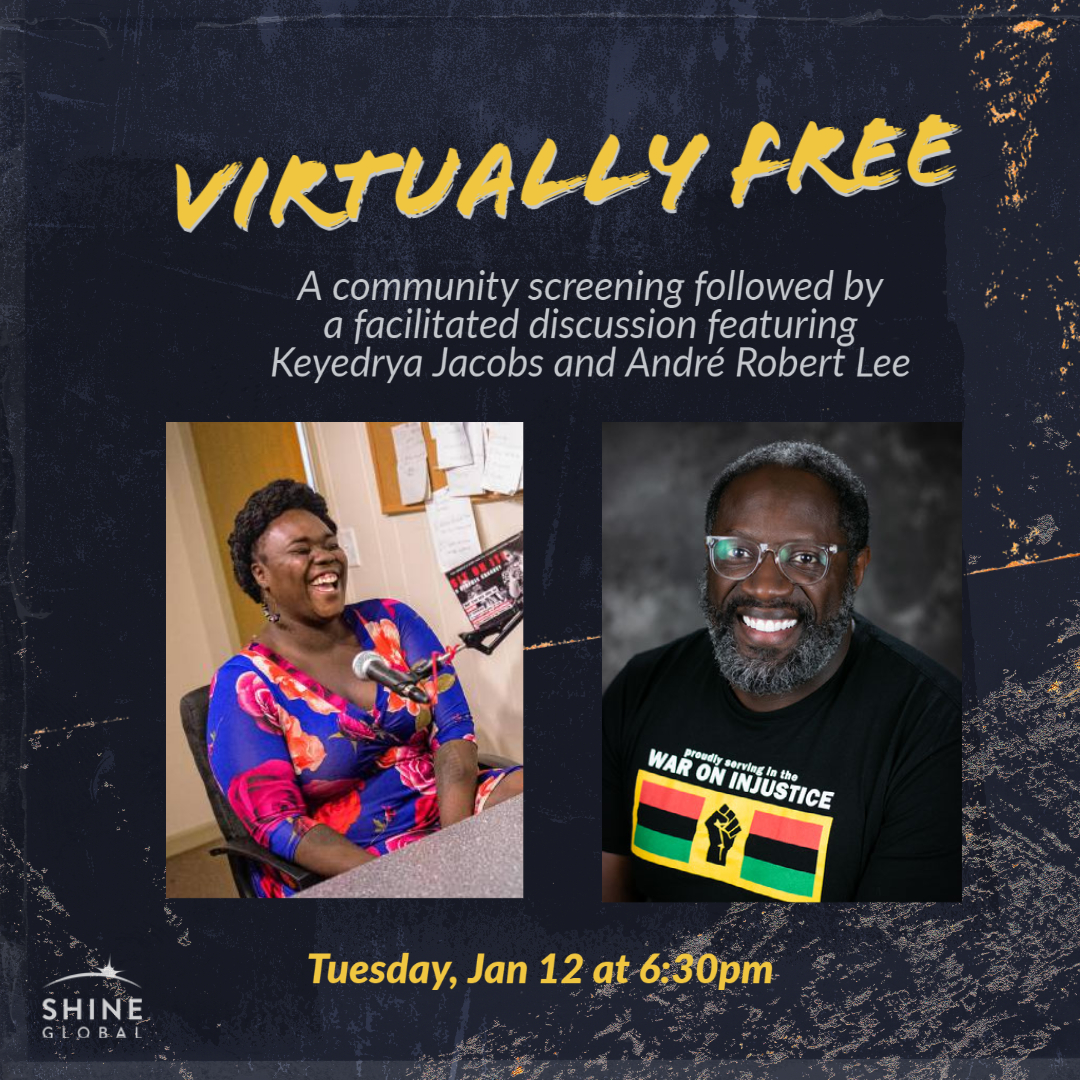Virtually Free Movie Screening

Among increasing calls for racial equity, Franklin County has joined those striving for change. In the fall, the Communities that Care Coalition (CTC) partnered with GCC, GCTV, Greenfield Savings Bank, and local schools for a virtual showing of “I’m not Racist, am I?” which broke Coalition records with over 700 devices and an estimated 1,200 viewers.
This January, the Coalition collaborated with local organizations to start dialogues around the mass incarceration of youth. Every year about 300,000 kids are confined in juvenile detention in the US. 70-80% percent of those detained will be re-arrested within 3 years. Director André Robert Lee’s documentary “Virtually Free” follows the lives of three boys in Richmond, Virginia as they work with unlikely allies who partner to transform the juvenile justice system and stop mass incarceration.
The film’s director, Lee, sat down with CTC’s Community Engagement Coordinator, Keyedrya Jacobs, and Greenfield’s Chief of Police, Robert Haigh, to have a dialogue after the screening.
“We’re used to seeing the blue line represent a brotherhood that always stands in certainty, unwaveringly backing each other and their way of doing things. But Haigh says when he doesn’t know something. He shows up and listens,” one event attendee remarked.
Jacobs, a strong local advocate for racial justice, first spoke with Haigh nearly 5 years ago in a community forum. Since then, she’s featured him on her podcast, “Let’s Be Honest” and has continued to talk with him through events like this.
“Haigh’s willingness to listen and show up has allowed our conversations to evolve and as we try to figure out how to change this system and make Franklin County safer,” said Jacobs.
Sage Shea, a program evaluator who works alongside Jacobs, added, “I’m an abolitionist, but I stil think harm reduction is vital even if it’s not as large as the end goal. The people working on all the incremental shifts that come with reform make police systems more receptive to radical change. At the end of the day, policing systems have disproportionately harm communities of color. I want that harm to be gone, but lessening that harm is still a win.”
“There’s been a clear hunger for learning and action within the community,” Shea added. The day of the screening, an estimated 300 people (150 devices) logged on to watch, and many more watched in the one-week following the live screening.
What’s more, is in a time of economic hardship when the country seems more and more divided, local businesses and organizations contributed to raise the money needed to pay for licencing and host the screening. From The Brick House to Greenfield Community College, Salasin Project to the Interfaith Council, and countless others, local collaborators contributed over four thousand dollars to bring this conversation forward and make the community a more just place for all its residents.
“I’ve known the Chief for years, and he knows he needs to listen to Black women. We’ve been mutually available to each other. My approach to justice always starts from a place of, ‘I love you, and you can do better,’” Jacobs said. But their relationship isn’t always effortless. There were months when she needed space from him because she couldn’t emotionally separate him from the system he works within.
“And he’s had to sit with that discomfort,” Jacobs added, pausing. “Haigh is a humble man, one of the youngest ever in this position. He knows he will forever be learning and that’s important. The biggest takeaway from the event was that even if you don’t have faith in the police system, we’re really fortunate that we can trust our Chief of Police here.”
Haigh has encouraged his staff to watch the documentary. Still, the continued documentary screenings are just one of many tools. Haigh will be connecting with the Racial Justice Community Engagement Leader at the Franklin County Community Development Corporation, Traci Talbert, to build on this momentum.
“I love that I know that my brothers and sons can be safe here and that the police are building these relationships in the community. To me this is a win,” Jacobs ended with, smiling.
